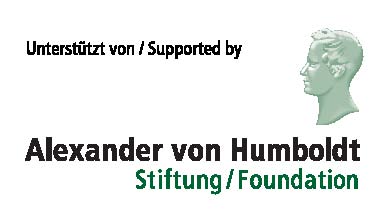Università degli Studi di Pavia
Home › Dipartimento › Sezioni › Linguistica Teorica e Applicata › Attività della sezione › Humboldt-Kolleg
Humboldt-Kolleg
Humboldt-Kolleg





Die vergleichende Sprachwissenschaft im 21. Jahrhundert
Historical-Comparative Linguistics in the 21st Century
Pavia, 22-25 September 2011
Historical-comparative linguistics relies on an enormous tradition of research developed in German universities, and many historical-comparative linguists, especially Indo-Europeanists but also specialists of Semitic and Altaic, have studied in Germany, often thanks to an Alexander von Humboldt scholarship. In the last decades, however, especially in Germany, historical-comparative linguistics has partly lost its centrality with respect to the other disciplines of linguistics. This could amount to a big loss, considering the wealth of knowledge accumulated over two centuries. For this reason, a re-assessment of the relevance of historical-comparative linguistics is in high demand. The Kolleg brings together a number of leading scholars in the field of historical-comparative linguistics, most of them with a German background of education and a valuable international experience, who can indicate new directions and trends aimed at such re-assessment. Invited young researchers will contribute fresh ideas for an unbiased interdisciplinary approach, relying on the background offered by senior scholars.
Themes:
The beginning of research in the field of historical-comparative linguistics coincides with the birth of linguistics itself. In the 19th century, historical-comparative linguistics found fertile ground for its development in German universities, where matters such as genetic relationship, language reconstruction and language change have been recognized as research topics and have been thoroughly investigated, often with an interdisciplinary approach, and where research tools and methodologies have been implemented, which where later extended to other fields of linguistics. For most of the 20th century, the primacy of Germany remained unchallenged, and virtually all scholars active in historical-comparative linguistics have received part of their training in Germany, and have then disseminated their knowledge in other countries. At the turn of the 21st century, in spite of increasing interest in synchronic language description, historical-comparative linguistics can still prove to have a ground-breaking force and a potentially exemplar role with respect to other linguistic disciplines through the implementation of new research methodologies, such as quantitative methods, and interdisciplinary dialogue with neighboring sciences, such as genetics, archaeology and cognitive sciences. For a compelling restatement of the central role of historical-comparative linguistics, German scholarship is again of paramount importance: especially in such areas of research as Indo-European linguistics and Oriental languages, factual knowledge accumulated over more than two centuries of research must be made available for linguists interested in language variation and in language typology, in order to foster knowledge exchange among neighboring but often non-communicating fields of linguistics. Collaboration between typologists and historical linguists is of special interest. In this field, German tradition provides a strikingly rich background, as Germany has also been the cradle of language typology, with its founding father Wilhelm von Humboldt, from the early 19th century, and is today the home of leading institutions for language typology, as it is for historical-comparative linguistics.
Università degli Studi di Pavia
Dipartimento di Studi Umanistici
Segreteria amministrativa: Piazza Botta, 6 - 27100 Pavia
Segreteria didattica: Corso Strada Nuova, 65 - 27100 Pavia
Sezioni del Dipartimento
Email: webmaster.lettere (at) unipv.it